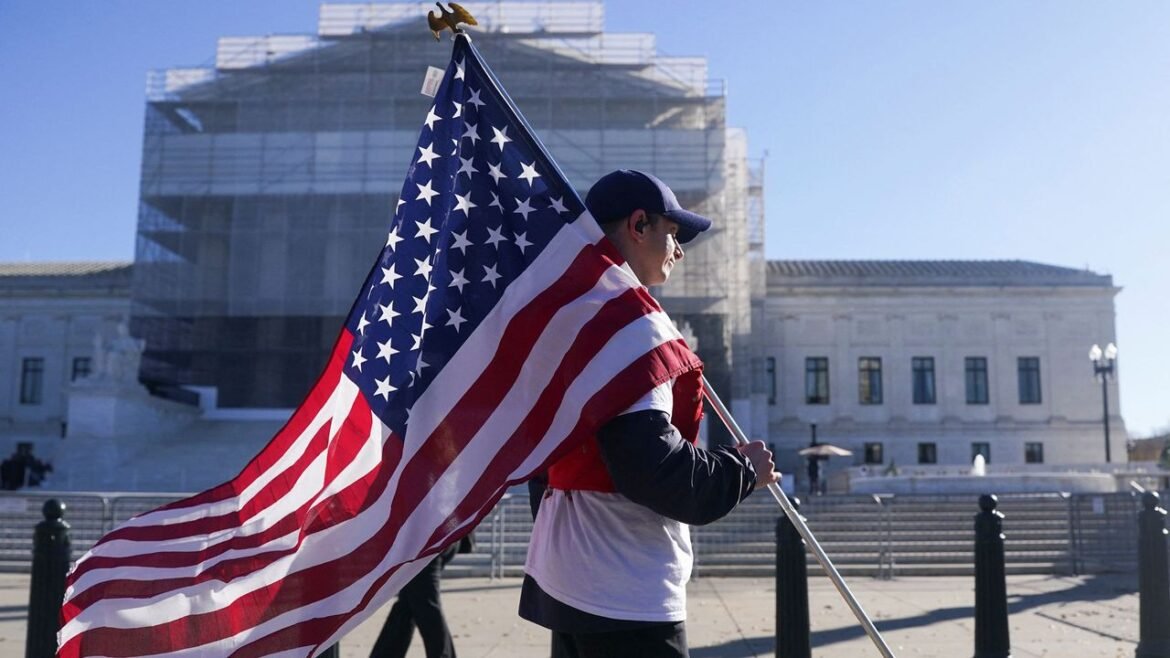On Wednesday, Solicitor General D. John Sauer insisted that the “most natural” and “common-sense” reading of IEEPA’s authorization to regulate importation is that it encompasses a power to impose tariffs, even though the word “tariff” is not used in the statute. If the Court decides against the President, the lucid performance of Neal Katyal, representing one set of challengers, must be credited with demonstrating that commonsense runs the other way. “It’s simply implausible that in enacting IEEPA Congress handed the President the power to overhaul the entire tariff system and the American economy in the process, allowing him to set and reset tariffs on any and every product from any and every country at any and all times,” Katyal said.
In recent years, the Supreme Court’s conservative majority has made clear that when the executive branch takes actions that have vast “economic and political significance”—as Trump’s tariffs obviously do—there may be “reason to hesitate before concluding that Congress meant to confer such authority.” In those situations, the Court’s major-questions doctrine, which it named and formalized in 2022, requires the executive to point to “clear congressional authorization” to act in such a manner. Applying the major-questions doctrine in 2023 to Biden’s cancellation of student loans, the Court held that Congress’s authorization to “waive or modify” laws and regulations on student debt did not cover student-debt relief.
In terms of economic and political impact, Trump’s tariffs are at least as major as Biden’s student-debt relief, and so the major-questions doctrine would seem to predict a decision against the President. But Sauer argued that the doctrine doesn’t hold with regard to foreign affairs, where the President has some inherent constitutional authority. This follows Justice Brett Kavanaugh’s suggestion, in a concurrence earlier this year, that the doctrine wouldn’t apply in “national security or foreign policy contexts,” where “the usual understanding is that Congress intends to give the President substantial authority and flexibility.” In oral arguments, however, it became clear that, in the case of tariffs, the major-questions doctrine can’t be so easily sidestepped. Foreign affairs or not, “tariffs are taxes,” in that they raise revenues, Katyal pointed out. “They take dollars from Americans’ pockets and deposit them in the U.S. Treasury.” Sauer resisted conceding that tariffs are taxes, claiming that their purpose is “regulatory,” not “revenue-raising,” but on this Katyal was helped by Sauer’s own brief for the President, which couldn’t help but tout the trillions of dollars that his tariff scheme is expected to bring in. Because the Constitution grants Congress, not the President, the power to tax, Katyal said, any congressional authorization for the President to impose tariffs must be given explicitly. (Chief Justice Roberts seemed on board, calling taxation a “core power” of Congress.)
If the Court were to conclude that Congress, in IEEPA, did authorize the President to levy tariffs, the Court would then have to consider whether Congress violated the separation of powers in doing so. The Court’s nondelegation doctrine is meant to insure that Congress does not hand over its power to make law. Yet, for nearly a century, the Court has considered very broad delegations to the President and concluded that they don’t run afoul of the nondelegation doctrine, leading many to believe the doctrine nearly dead. But, in recent years, several of the conservative Justices, in dissents, have seemed ready to start striking down some delegations as being too unspecific to be consistent with the separation of powers. Katyal reminded the Court that just last term, Justice Neil Gorsuch, joined by Justices Clarence Thomas and Samuel Alito, took the position, in a dissent, that Congress had unconstitutionally delegated its taxing power to the F.C.C. in authorizing a tax on phone and internet bills to subsidize rural internet access. The current case could present an occasion for a conservative majority to declare that Congress, in IEEPA, unconstitutionally delegated its taxing power—making Trump’s tariffs unlawful.
Justice Gorsuch told Sauer that he was “struggling” to “accept the notion that Congress can hand off the power to declare war to the President,” which Gorsuch took to be a logical implication of Sauer’s seeming contention that congressional delegations to the President in foreign affairs are essentially unreviewable. Gorsuch professed to be “delighted” when, in response to his questioning, Sauer “backed off that position.”



